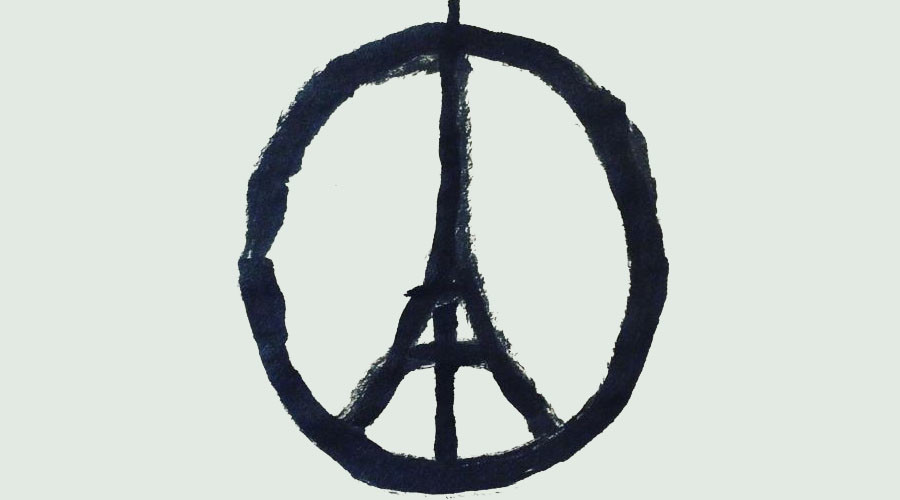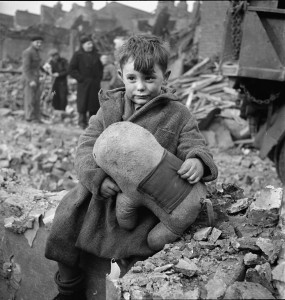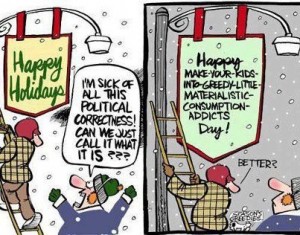
Two days ago, in Paris, eight terrorists armed themselves with rifles, and went to nightclubs, restaurants, a concert, and a soccer game, where they shot dozens of innocent people at random. They then triggered explosives strapped to their bodies, blowing themselves and anyone around them to bits. One hundred and twenty-nine are dead. Ninety-nine remain in critical condition. ISIS claimed responsibility, just as they claimed responsibility for the bombing in a Bagdad mosque during a funeral the same day, killing nineteen; the bombing in Beruit the day before, killing forty-three, the Russian airplane that exploded over Sinai on Halloween, killing all 224 people aboard; and the terrorist attacks on Charlie Hedbo and a Jewish deli ten months ago, also in Paris, killing another twelve.
Meanwhile, Syria has been at war with itself for four years, resulting in twelve million Syrians fleeing their homes. Six million of those are children. Thousands and thousands of Syrian refugees risk their lives and the lives of their families every day in search of a place where the government does not try to kill them. Thousands and thousands are turned away by fearful citizens unwilling to take the risk of allowing Muslim refugees in their neighborhoods, and governments whose infrastructure cannot handle this kind of radical hospitality. Syria is not the only country losing its people to violence. Families from Afghanistan, Kosovo, Albania, Iraq, Serbia, Pakistan, and the Ukraine are pouring into Western Europe at a rate not seen since World War II. Between the Middle East and Africa, over sixty million people were displaced at the end of 2014.
Nearly half of the world’s population – three billion people – lives in poverty on less than $2.50 per day. One in nine people on earth do not have enough food to lead a healthy, active lifestyle. Poor nutrition causes nearly half of deaths in children under five – that’s 3.1 million children per year. Hunger is the number one cause of death in the world, killing more of our brothers and sisters than HIV/AIDS, malaria, and tuberculosis combined. Yet there are only a few famines around the world. Rather than natural disasters such as drought or flooding, food shortages arise more often from armed conflicts, poor infrastructure, and lack of transportation.
This is but the beginning of the birth pangs.
What exactly are we giving birth to?
Hannah was barren. It says that “the Lord closed her womb,” which I find particularly disturbing, because barrenness was shameful and perilous for women in Hannah’s world. Children meant prosperity, God’s favor, a legacy. Barrenness meant sinfulness, God’s wrath, and no one to remember you. A woman in Hannah’s predicament was looked upon by her neighbors and her family with suspicion and contempt. Her situation was precarious. Because she had not lived up to her potential as child-bearer, she would ultimately become a burden to her family – one who does not contribute to the wellbeing of the clan. Her husband could divorce her for infertility; or should he die, the remaining family could cast her out, where she would have no food or shelter. Hannah was untethered; and with no male child to tie her to her family, her future was ambiguous at best.
In contrast, the temple in Jerusalem was far from barren. Just a few verses earlier, we get a picture of wealthy congregants dumping gobs of money into the treasury. Three to four hundred thousand pilgrims visited the Temple every year during Passover, bringing offerings of food and money. The Temple capital campaign was booming; they had cash to spare. And while the Romans considered Judea a bit of a sore spot, the temple was politically secure. Herod the Great received Rome’s blessing to rebuild it fifty years earlier. It was a palace for God, a gift from the Romans – awe-inspiring in size, in artistry, and in cutting-edge design. People from all over the Greco-Roman world came to see the splendor of Jerusalem’s Temple. The bricks of which the disciples speak averaged around twenty-eight tons each, and some were as large as six hundred tons. It was an engineering feat, a great point of pride for Jerusalem, a sign of wellbeing, proof of God’s favor. The temple was expected to last forever.
Nothing lasts forever. Good or bad – everything has a beginning and an end. What goes up also comes down. The first shall be last and the last shall be first. The barren shall be called the mother of nations.
What are we giving birth to?
The story of Hannah in I Samuel and the predicted destruction of the Temple in Mark each come at a turning point in Israel’s history. The writers of I Samuel let us know that the leaders of Israel were corrupt. They made it standard practice to steal from religious offerings and rape the women who served the priests. But God saw the corruption and God remembered Hannah. Hannah doesn’t ask to change the world. She doesn’t even ask to keep her child. Yet, her son, Samuel, becomes Israel’s last judge by crowning its first two kings, Saul and David. One woman’s desperate cry to God for a son leads to the creation of a nation.
The prediction of the Temple’s destruction is realized in the year 70, C.E. Fueled by religious tension and nationalism, Jerusalem revolts against Rome and loses – badly. The temple, center of all Jewish religious life, is razed to the ground. Sixty-five years later, the Jews revolt again, led by Simon bar Kokhba, who called himself the Messiah. Once again, the revolt is crushed, but this time most of the Jewish population is slaughtered, 580,000 men, women, and children. Those Jews who remained were banned from ever returning to Jerusalem again. And in an attempt to destroy even the memory of a Jewish nation, Emperor Hadrian wiped the name of Israel and Judea off every Roman map and changed it to Syria Palestina.
The violence in France and the Middle East this past Friday, also happened ten years ago, a hundred years ago, five hundred years ago. Refugees have poured into our own country for the last four hundred years, seeking safety and a new life – their journey is the reason the United States became a nation. And the poor and hungry remain on the margins, in every generation, no matter how plentiful our resources.
There will always be wars and rumors of wars. There will always be barren land, barren rivers, and barren people. The cycle of plenty and want, victory and loss, bloodshed and healing will continue – and here’s the catch – as long as we allow it to continue. God sees us and God remembers us. These are the beginnings of the birth pangs, and we have been in labor for centuries upon centuries, hoping to give birth to something that saves us from our shame.
We need a midwife, for what we have yet to birth is peace.
Today’s scripture reminds us that our God is a God who gets involved, who gets dirty with us, who lives in our humanity, even when that humanity stinks and festers and eats it’s own children. God acts in the least likely places on earth with the least likely people on earth to bring about the Kingdom of Heaven here and now. We, the least likely in the least likely of places, are called to act as well. In a world where violence begets violence, peace isn’t going to birth itself. We have to push together.
It’s been so long since Eden, we don’t remember what peace looks like. But we have an inkling. This much I know: Peace looks like us – all of us – brown, white, black, and umber. It looks like every faith and every tradition – Muslim, Jewish, Christian, Hindu, Atheist, Buddhist. It looks like every political ideology – conservative, liberal, communist, socialist, capitalist. What it does not resemble is “me,” “I,” “my,” and “mine.” It comes from God, an immaculate conception between the Creator and the creation. Peace looks like a family, where everyone is welcome, everyone has a voice, and everyone is fed.
We have a very long labor before us.
It is called labor because we must work at this. If we are ever to give birth to peace, if we are ever to work with God toward God’s Kingdom – toward that beautiful city, the image of which was planted in our souls from the moment we were conceived – we have to start here and now with us. We must chip away at the resentment holding us hostage. We must cut down the prejudice that blocks our way. We must break our hearts hardened by years of fear and hatred, and then soften them by forgiveness, humility, generosity, and hospitality. Loving our enemies wasn’t just a suggestion. It’s the only way to bring forth peace.
Right now, people we know are out there pushing for peace to come into this world. Former Presbyterian minister and creator of Mr. Roger’s Neighborhood, Fred Rogers, points to them in this quote, “When I was a boy and I would see scary things in the news, my mother would say to me, ‘Look for the helpers. You will always find people who are helping.’ To this day, especially in times of ‘disaster,’ I remember my mother’s words and I am always comforted by realizing that there are still so many helpers – so many caring people in this world.”
We need more helpers. We need nations of people willing to give up “me and mine,” for a chance at “us.” We need leaders with the wisdom to know that security is a myth, and strength only comes from the vulnerability that invites and listens and feeds and heals. We need, each of us, to know that peace is real and within our grasp. Though labor is stalled and it feels as if it may never arrive, peace can be born in this world.
Everything we need to birth this baby is within us. We only need to call the Midwife, who can direct us and lead us through the labor. These are but the beginnings of the birth pangs. We are at a turning point. Remember to breathe, and to pray, and to believe. With God, all things are possible. Even the barren shall become the mother of nations. Let us breed nations of peace.
Amen.
Sermon preached at The Hermitage on November 15, 2015. Lectionary scripture passages: I Samuel 1:4-20 and Mark 13:1-8


Average Rating